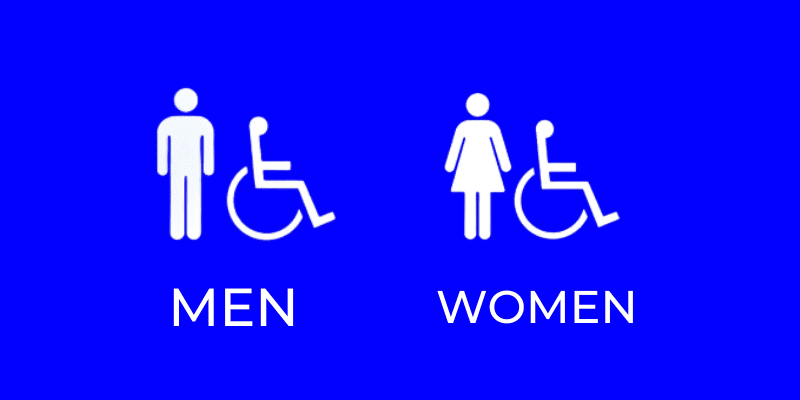ADA signs are an essential safety feature for your business. They help ensure that all your customers can find their way around safely and quickly. Understanding when and how to display ADA-compliant signs is essential to ensuring that your business is accessible to everyone.
Why your business needs ADA Signage?
There are about 12 million people in the United States who have some form of visual disability, according to the Centers for Disease Control and Prevention. This can make everyday tasks difficult, such as finding your way around a building. ADA signs help visually impaired people with such tasks.
There are three main reasons to use ADA signage:
1) Safety
ADA signs are essential for the safety and security of your guests and those with visual impairments. By alerting visitors of exits and providing directions to specific rooms and offices, you’re helping keep everyone safe in an emergency and making your establishment more welcoming and accommodating.
2) Welcome customers
ADA signs let everyone know you’re welcoming and inclusive and want everyone to feel comfortable on your property. People who feel valued are more likely to return to your business again and again.
3) Legal Requirements
Complying with the Americans with Disabilities Act (ADA) is not only the law but also protects your business from lawsuits and costly government fines. Although businesses get some time to correct ADA violations, a highly publicized mistake can damage your company’s reputation. If you’re unsure whether an ADA sign is needed, it’s always better to be safe than sorry.
ADA Signs Components
According to federal regulations, any business that requires signs must adhere to specific standards. Some of the primary standards regarding these signs involve the following:
- Fonts must be sans serif, not italic, script, or otherwise decorative – this ensures maximum legibility for those reading the text by touch.
- The size of the text must range between 5/8 inches and two inches.
- Letters should be raised and uppercase. This is again for the benefit of those reading the text by touch.
- Spacing (or kerning) between letters must be at least 1/8 inch. While this may not be as appealing visually, it is essential for those reading the sign by touch.
- Signs should be between 48 and 60 inches above the finished floor. The only exceptions to this guideline are the tactile characters in an elevator car. Overhead signs must be 80 inches above the floor to ensure adequate clearance below.
- In addition, signs should be located on the latch side of doors, making them easy to find. On double doors, signs are either placed on the right-hand side of the inactive leaf of the door if one is present.
- ADA signs must have non-glare backgrounds. While the color can vary, the contrast between the letters must be distinct.
Not all signs in your building need to be ADA-compliant. For example, address and parking signs, directories, and temporary signs are not subject to ADA requirements.
Get ADA Compliant Signs
ADA signs are essential for many reasons – they can help your building meet federal standards, enhance branding, and improve your business. However, designing and installing ADA-compliant signs can be confusing and complicated for many building owners. That’s where the experts at adendo come in. The advisors at adendo can guide you in creating signs that fit your style without compromising essential functions. So if you need expert help with your ADA sign, don’t hesitate to contact adendo today.


